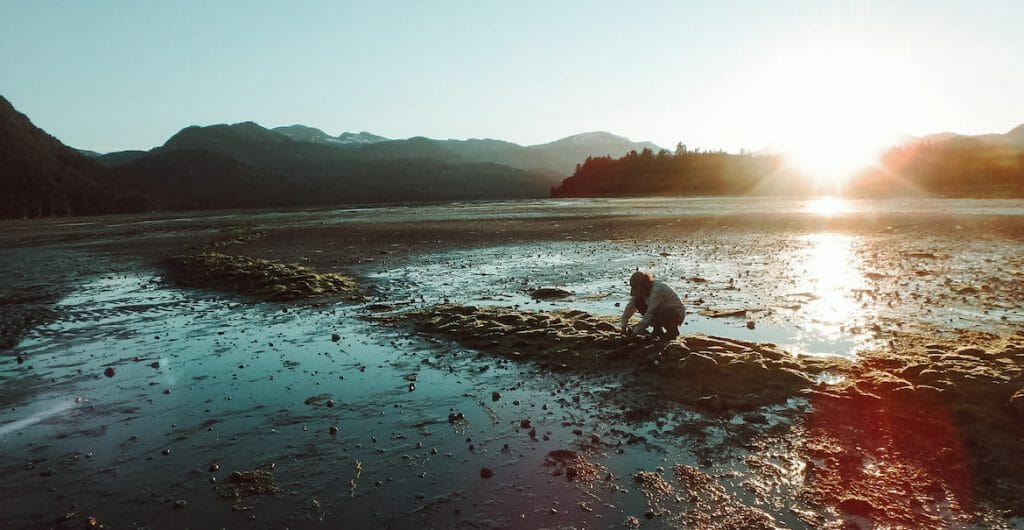Estimated Reading time

2 Mins
La’goot Spencer Greening on Indigenous Harvesting Rights and Practices

La’goot Spencer Greening is an Indigenous scholar from the Gitga’at Nation. His research examines the relationship between traditional ecological knowledge, Indigenous legal systems, and Indigenous management of ecosystems. In a recent article published on the Anchored Outdoors website, La’goot draws on his personal experiences as an Indigenous hunter and angler to “shed some light on the value of Indigenous harvesting practices, and why state laws and systems that protect Indigenous harvesting practices are important for land stewardship and conservation.”
La’goot explains that “in spite of centuries of colonial assimilation policies and processes aimed at dispossessing Indigenous people of their relationships to the land,” Indigenous stewardship practices endured and can today “provide an alternative to Western ways of resource management that can be looked at by people seeking sustainability, ingenuity and success.”
Indigenous stewardship practices provide an alternative to Western ways of resource management that can be looked at by people seeking sustainability, ingenuity and success.
The current depletion of salmon stocks in the Pacific Northwest Coast of present-day British Columbia is illustrative of La’goot’s point. Whereas First Nations across coastal B.C. used sustainable salmon harvesting methods—like fish traps and other regionally-adapted systems—to ensure a careful balance between abundant harvests and healthy stocks for thousands of years, post-contact salmon runs have plummeted to disastrously low levels since being placed under the management of the Department of Fisheries and Oceans Canada. “The example of salmon provides clear insights into how historically, Indigenous harvesting rights have been unacknowledged and undermined,” writes La’goot, adding that, “[i]t also points to a different way forward.”
By learning from the past, La’goot sees a sustainable path ahead—one that encourages cross-cultural dialogue and includes Indigenous knowledge and voices in the development of conservation policies and practices. “As people with a rich history of management science, we have knowledge that can help to address pressing questions of stewardship and sustainability by asking ourselves, ‘What were the practices that allowed our ancestors to sustain themselves for millennia?’” posits La’goot. “It is my hope that hunters, anglers, lawmakers and politicians would be open to exploring the answers to that question as well.”
To read the full article, including a link to an audio interview with La’goot about Indigenous ecosystem management, visit the Anchored Outdoors website.
Learn how Gitga’at Nation Guardians are using science to safeguard their territory.
